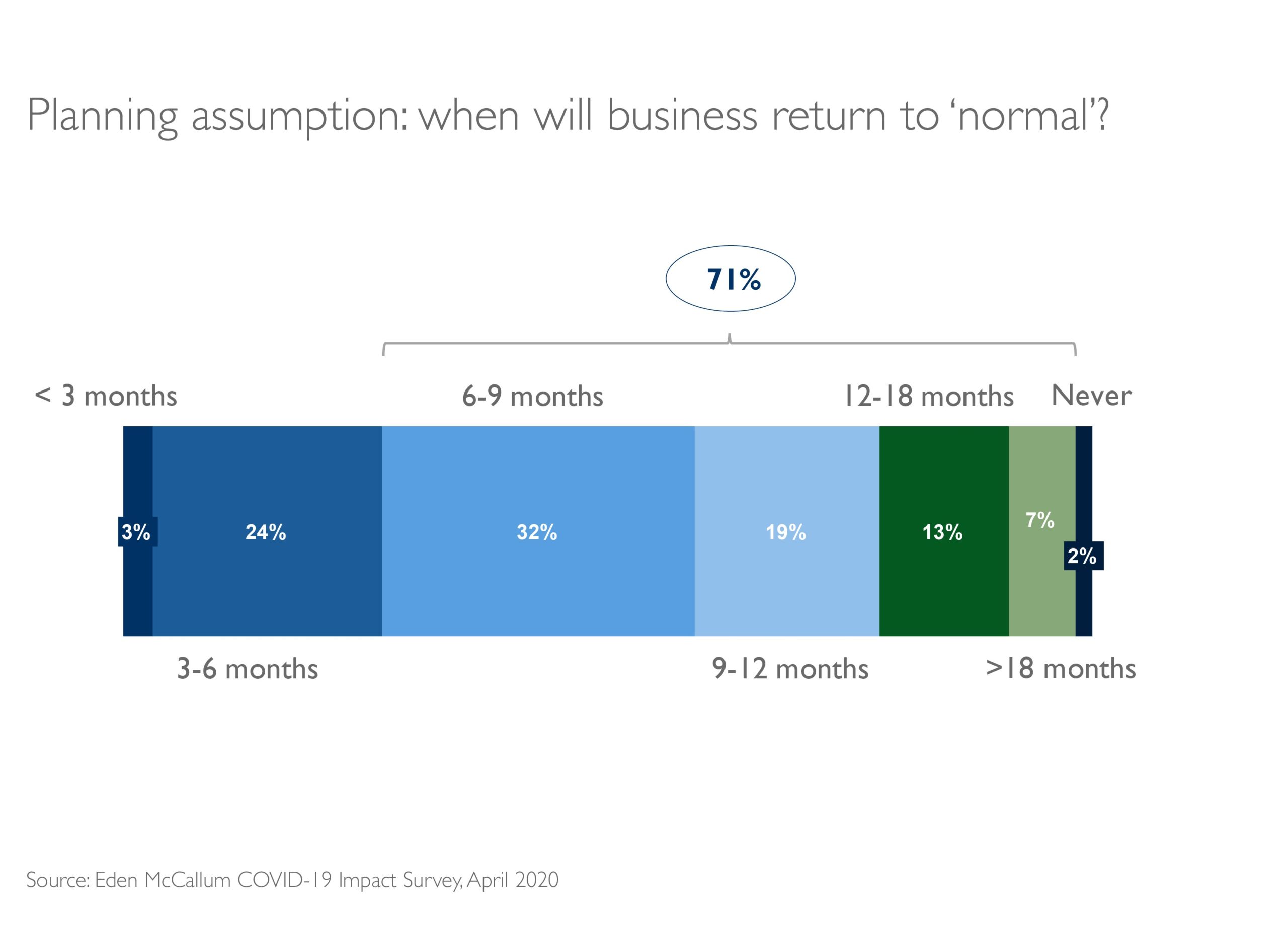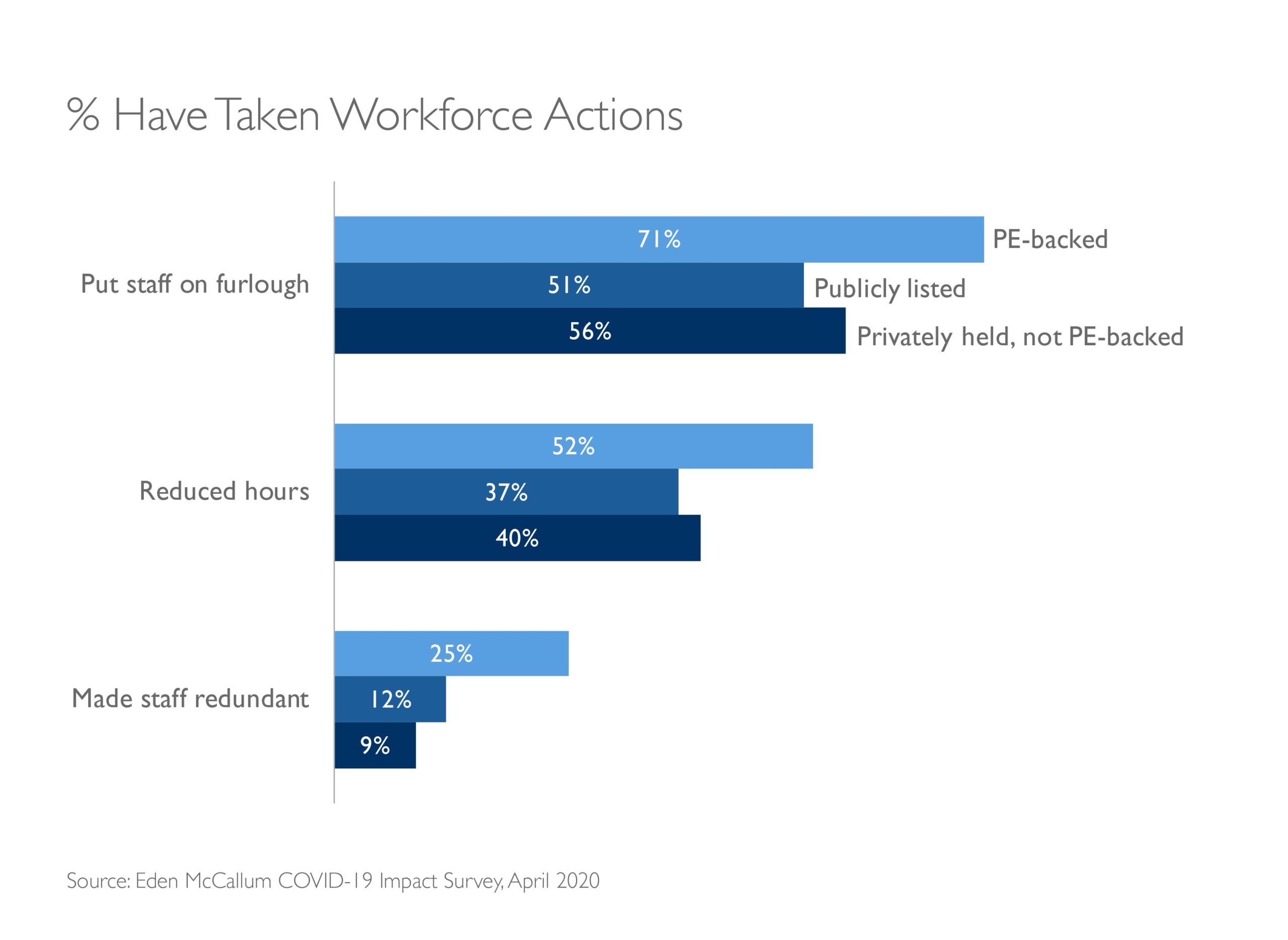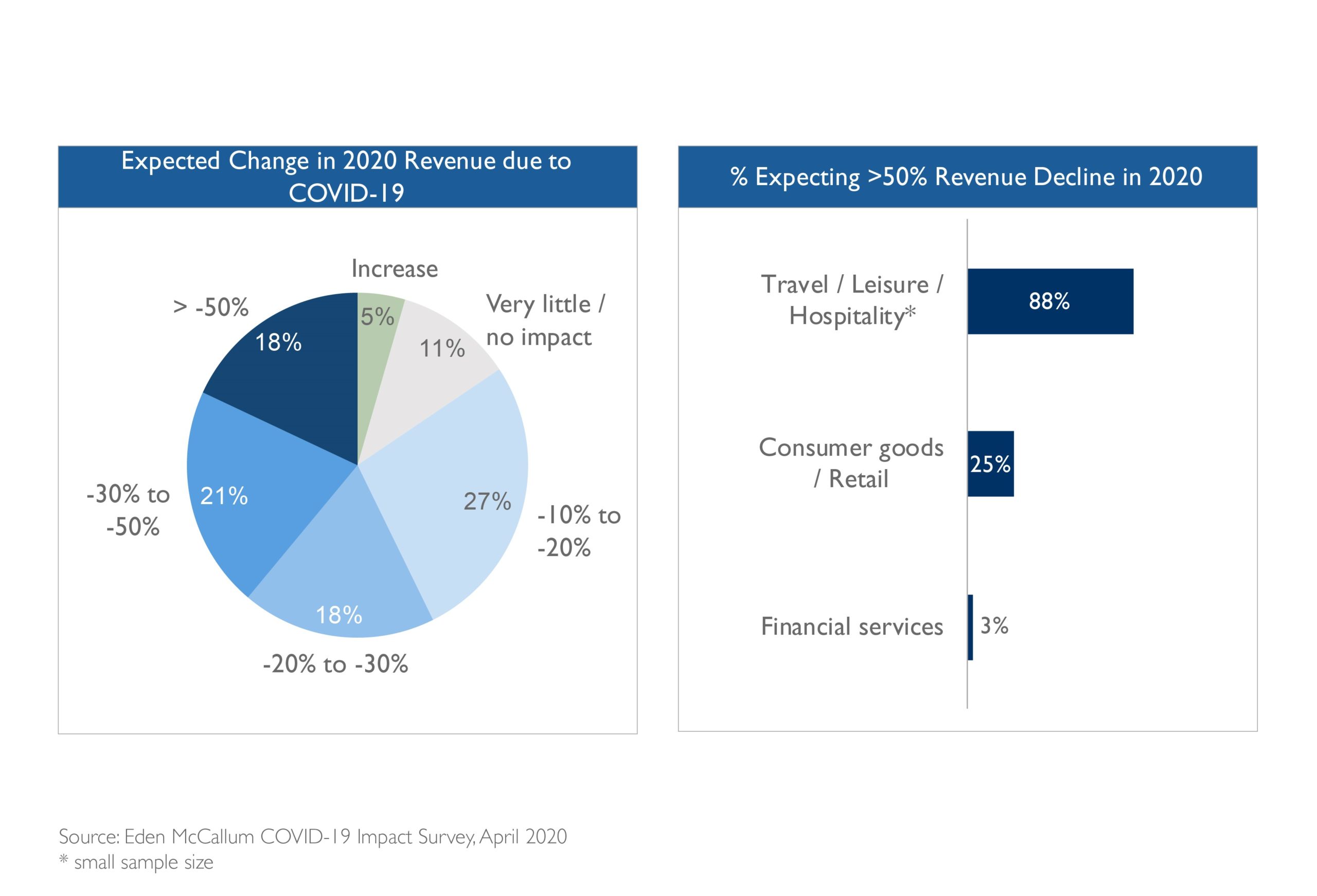Managing the Covid-19 crisis: Eden McCallum survey results from >300 business leaders
Covid-19 has brought about unprecedented global disruption to the normal functioning of business and society. In order to understand how businesses are responding to this sudden and unforeseen challenge, Eden McCallum surveyed over 300 business leaders last week.
The results highlight the huge impact the crisis has already had on businesses across sectors, and the widespread decisive and radical actions this has necessitated to manage cost and cashflow. Among the most significant findings:
- 76% of business leaders say the Covid-19 crisis has had a negative impact on their company to date (33% ‘very negative’)
- 60% expect their revenue to fall by 10%-40% in 2020, and 18% expect a revenue fall of over 50% for the year
- 71% expect it to take 6+ months for trading to return to ‘normal’
- 51% have furloughed staff and 11% have made staff redundant
- 81% have reduced non-people operating costs, and 78% have deferred/reduced planned capex

Unsurprisingly, not all sectors are feeling the same degree of impact, with travel / leisure / hospitality hardest hit. 88% of travel / leisure / hospitably respondents expect >50% reduction in 2020 revenues, compared to 25% for consumer goods / retail and only 3% for financial services. Leaders in the sector have also taken the most action to reduce workforce costs, across all measures, with 88% furloughing staff, 94% reducing pay and 23% making staff redundant, compared to 51%, 23% and 11% respectively for all respondents.
It has been interesting to note that private equity owned businesses have taken more action than their publicly listed counterparts. For example, private equity-backed businesses are most likely to have reduced workforce costs, with 71% having put staff on furlough and 25% having made staff redundant compared to 51% and 12% respectively for publicly listed companies. They are also acting most quickly to preserve cash, with 72% delaying or renegotiating tax payments, 63% suppliers’ payments and 61% rent vs. 36%, 33% and 23% respectively for publicly listed businesses.

Sara Ghazi-Tabatabai at Eden McCallum says: “The shutdowns have given business leaders little choice but to take preventative action to save their businesses and prepare for recovery, whenever it comes. Our survey shows that not all businesses are equally affected. Governments will need to be thoughtful about when and how they extend their support and also relax the terms of trade for different sectors.”

To end on a positive note, we have found it heartening to learn that even in this time of crisis, business leaders are making time and resources available to help those in need. 59% have encouraged or made it possible for employees to volunteer, 49% have donated services or physical items and 34% have donated money.
To view the full results, please click here.
We will be launching the second survey next week to track how businesses respond as the crisis evolves, so please follow us to remain updated.

